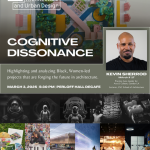Oakland Ceespool (Payoff Paradise) Alameda County
In the heart of California lies a city that ought to be a beacon of progress, a vibrant tapestry of cultures woven together under the sun-soaked skies of Oakland. Yet, beneath this façade of diversity and hope lies a cesspool of corruption, cronyism, and systemic discrimination that threatens to undermine the very foundations of justice and equality. Welcome to “Payoff Paradise,” where the political elite play a dangerous game, and the marginalized bear the brunt of their machinations.
The Corruption of Shang Thao
At the center of this sordid tale is Mayor Shang Thao, a figure who has risen to power amidst whispers of conspiracy and unethical practices. Thao, alongside her romantic partner Andre Jones and the notorious Duong family, stands accused of orchestrating a plot to manipulate the outcome of the 2022 mayoral election. In a city where connections often dictate outcomes, the Duong family’s desire for lucrative city contracts for housing and waste management was seemingly met with open arms.
Thao’s rise was not without its controversies. Once an intern in the office of Councilmember Rebecca Kaplan, she quickly ascended to power, leveraging relationships that seem more transactional than transformational. With most government officials in Oakland hailing from elsewhere, the disconnect between leadership and the community is palpable. It’s a recipe for exploitation, where the needs of the many are sacrificed at the altar of political gain.
### The $25,000 Shakedown
Now let’s pivot to Alameda County District Attorney Pamela Price, another player in this grim theater of politics. Price is embroiled in a scandal that would make even the most hardened political observers raise an eyebrow. Allegations have surfaced that she solicited a $25,000 cash donation from political critic Mario Juarez to help her fight a recall effort. Juarez, who has openly criticized Price, found himself facing a felony check fraud charge shortly after refusing her request.
This isn’t just a case of political maneuvering; it reeks of vindictive prosecution. Castillo, Juarez’s attorney, claims that Price’s actions are motivated by a desperate need to maintain her position amid mounting criticism. If this isn’t a classic example of quid pro quo corruption, then what is? Price’s alleged attempts to silence dissenters through intimidation and legal repercussions represent a dangerous precedent for all who dare to challenge the status quo.
AAPI Discrimination in Alameda Courts
But the rot doesn’t stop there. The Alameda County court system has come under fire for its discriminatory practices against AAPI communities, particularly the Samoan population. Allegations have emerged that systemic bias permeates the judicial process, leading to unfair treatment and unequal representation. This is not just an issue of individual prejudice; it’s a reflection of a broader societal failure to acknowledge and address the complexities of cultural identity within the justice system.
If the courts are supposed to be the bedrock of justice, then how can we trust them when they actively exclude voices based on race or ethnicity? The implications are dire: marginalized communities lose faith in a system designed to protect them, and the cycle of injustice continues unabated.
The Exclusion of Black and Jewish Jurors
In a city that prides itself on its diversity, the exclusion of Black and Jewish jurors from the jury pool is particularly alarming. Historical patterns of discrimination have a way of echoing through time, manifesting in modern practices that disproportionately affect these communities. When juries lack representation, the very essence of justice is compromised.
As we reflect on these issues, it’s crucial to remember that the struggle for representation is not just a matter of numbers; it’s about ensuring that the voices of the marginalized are heard and valued. The failure to include diverse perspectives in the jury process only perpetuates the systemic inequalities that plague our society.
A Special Election and a Police Force in Crisis
In a shocking turn of events, both Mayor Thao and DA Price faced recall in a special election, a clear indication that the public is growing weary of the corruption and incompetence that has marred their administrations. The people of Alameda County are demanding accountability, but the question remains: will the system allow for genuine change, or will it continue to protect its own?
Compounding these issues is the fact that the Oakland Police Department is currently under federal oversight for corruption and brutality. The city has become a cautionary tale, a stark reminder of how power can corrupt, and how those sworn to protect can become instruments of oppression. The community is left to grapple with the reality that their safety is compromised by the very institutions designed to uphold it.
Targeting Sabian Carabello
Adding another layer to this intricate web of corruption is the case of Sabian Carabello, the CEO of Bliss Mushrooms and President of Ritual Church. Carabello, a community leader, found himself targeted by the authorities after speaking out against the corrupt practices within the Oakland Police Department. His detention on dubious charges is a chilling reminder of how dissent is often met with punitive measures, especially when it threatens the established order.
The contrast in treatment between individuals like Carabello, who dares to speak truth to power, and those in positions of privilege is stark. When a white man declares, “Give me liberty or give me death,” he is often celebrated as a hero. When a Black man echoes the same sentiment, he is branded a criminal. This double standard reveals a deep-seated bias that continues to plague our society, perpetuating a cycle of injustice that targets those who dare to challenge the status quo.
The Historical Context of Racism
Historically, the white power structure has made examples of Black men in positions of influence, tarnishing their reputations to maintain control and perpetuate white supremacy. This pattern of vilification is not merely a relic of the past; it persists today in the form of systemic discrimination and targeted campaigns against those who dare to rise above their station.
The narrative surrounding Black men who speak out against corruption is often twisted, painted with the brush of criminality and threat. This is not only a tragedy for the individuals involved but a profound injustice that reverberates throughout the community. When those in power utilize their influence to discredit and silence dissent, they not only undermine the principles of justice but also stifle the voices of those who seek change.
A Call to Action
As we navigate this treacherous landscape, it is imperative that we remain vigilant. The events unfolding in Oakland serve as a clarion call for all citizens to demand transparency, accountability, and justice. We must challenge the status quo and refuse to accept a system that perpetuates inequality and corruption.
It is time to hold our leaders accountable and to ensure that the voices of the marginalized are not only heard but amplified. The fight for justice is not an isolated struggle; it is a collective endeavor that requires the participation of all who believe in the principles of equity, fairness, and integrity
Conclusion
The underbelly of Alameda County is rife with corruption, discrimination, and systemic injustice. The stories of individuals like Shang Thao, Pamela Price, and Sabian Carabello reveal a troubling pattern that demands our attention and action. As we confront these challenges, let us remember that the true measure of a society lies in how it treats its most vulnerable members. Together, we can shine a light on the darkness and work towards a future where justice is not just a lofty ideal, but a lived reality for all.
Tweet




![Will Rawls [siccer] stage performance - Photo by Jared Sorells.](jpg/will-rawls-siccer-stage-performance-photo-by-jared-sorells-290x166.jpg)








![Will Rawls [siccer] stage performance - Photo by Jared Sorells.](jpg/will-rawls-siccer-stage-performance-photo-by-jared-sorells-50x50.jpg)








![Will Rawls [siccer] stage performance - Photo by Jared Sorells.](jpg/will-rawls-siccer-stage-performance-photo-by-jared-sorells-150x150.jpg)







